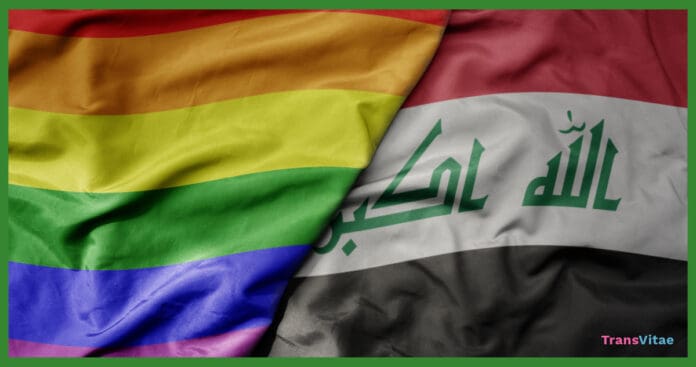In a move that has ignited international condemnation, Iraq’s parliament over the weekend passed a stringent law over the weekend imposing harsh penalties on LGBTQ+ individuals. This legislation, amending the country’s existing anti-prostitution laws, now criminalizes same-sex relations and gender-transition procedures with severe prison sentences.
The law introduces a punitive range from 10 to 15 years for individuals engaged in same-sex relationships and one to three years for those involved in gender-transition surgeries or “intentional practice of effeminacy.” Additionally, the legislation prohibits organizations that support LGBTQ+ rights, threatening at least seven years imprisonment and hefty fines upwards of 10 million dinars (approximately $7,600).
International Backlash
The enactment has drawn sharp criticism from global human rights groups and leading diplomatic figures, expressing concerns over the potential impacts on Iraq’s society and its international relations. Matthew Miller, a spokesperson for the U.S. State Department, emphasized that the law “threatens those most at risk in Iraqi society” and warned it could “hamper free-speech and expression,” potentially deterring foreign investment.
Echoing this sentiment, British Foreign Secretary David Cameron described the law as “dangerous and worrying,” highlighting a significant step back in the fight for human rights within the region.
Despite homosexuality being largely taboo in Iraq’s conservative landscape, this formal criminalization marks a dramatic escalation in the government’s stance against the LGBTQ+ community.
Historical Context and Societal Impact
Iraq has seen periodic anti-LGBTQ+ campaigns by political leaders, but until now, there wasn’t a law that explicitly outlawed homosexuality. The sudden passage of this amendment underlines a worrying trend of using legislation to enforce traditional values at the cost of individual freedoms.
Mohsen Al-Mandalawi, the acting Iraqi parliamentary speaker, defended the law, stating it was crucial “to protect the value structure of society and our children from calls for moral depravity and homosexuality.” This rhetoric suggests a deep-seated resistance to Western influences concerning gender and sexual rights.
Human Rights Concerns
Rasha Younes, a senior researcher with the LGBT Rights Program at Human Rights Watch, articulated the gravity of the situation, stating the law “rubber-stamps Iraq’s appalling record of rights violations against LGBT people.” She warned it represents a significant blow to fundamental human rights, including the freedoms of expression, association, privacy, equality, and non-discrimination.
A 2022 report by Human Rights Watch highlighted ongoing abuses within Iraq, including the abduction, rape, torture, and murder of LGBTQ+ individuals by armed groups, often without government intervention or accountability.
The Way Forward
As the international community reacts and debates potential responses, the future for LGBTQ+ individuals in Iraq appears increasingly precarious. This law not only threatens their safety and freedom but also isolates Iraq further on the global stage.
For those of us outside these immediate dangers, it’s crucial to stand in solidarity with Iraq’s LGBTQ+ community. Advocacy, awareness, and tangible support through international human rights organizations can apply pressure on the Iraqi government to reconsider its stance and uphold basic human rights.
Today, more than ever, the global narrative around LGBTQ+ rights is being tested. The situation in Iraq serves as a stark reminder of the battles still being fought and the resilience required to face such adversity. As a community, it is our responsibility to support each other and advocate for those who are silenced, ensuring no one has to face such challenges alone.


